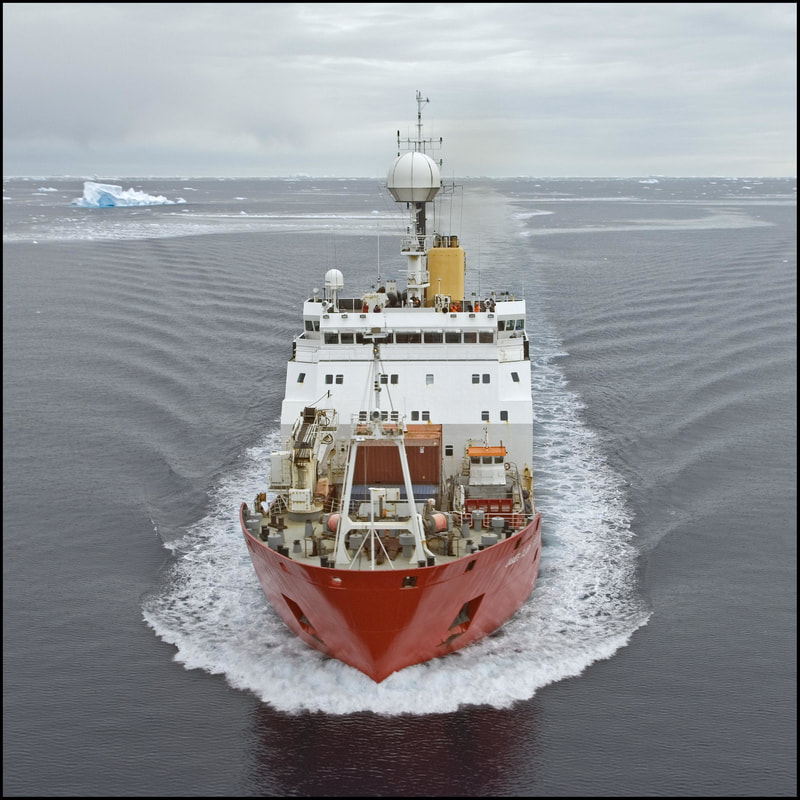|
Hello readers! Welcome aboard the 2017 ICEBERGS research voyage to the West Antarctic Peninsula.
Follow our progress over the next few weeks as we sail from the Falkland Islands, across the remote and reputedly choppy Southern Ocean, to the West Antarctic Peninsula. Traveling onboard the RRS James Clark Ross, our team of scientists, technicians and crew will be collecting a plethora of scientific measurements which will help to understand how the marine life in this unique region is responding to a changing global climate. The West Antarctic Peninsula is experiencing the most rapid and intense physical change in the Southern Hemisphere. Complex and patchy marine warming, sea ice losses, retreating glaciers, and the collapse of ice shelves are all being observed. Environmental changes due to ice losses significantly impact Antarctic ecosystems and are likely to promote changes in species diversity and community structure. Over longer time scales, these ecological effects have consequences for genetic diversity and gene flow, which may reduce the evolutionary potential of species. The ICEBERGS project aims to investigate the impact of physical disturbances arising from climate-change induced deglaciation, on benthic marine life around the West Antarctic Peninsula. We are adopting a multidisciplinary approach involving geophysical, physical oceanographic, sedimentological and biological sampling of three contrasting sites in West Antarctica: Marian Cove (King George Island); William Glacier (Anvers Island); and the Sheldon Glacier (Rothera). Measurements will be repeated over three field seasons between 2017 and 2019. In the first two field seasons sampling and measurements will be taken from the RRVJames Clark Ross. The project is also forming the focus for a series of additional sub-projects including an investigation of microplastics on the Antarctic marine biota and the development of sclerochronology (hard shells) to generate biological proxies for reconstructing long-term and short-term environmental changes in Antarctica. Follow us on twitter: @ICEBERGS_JCR.
2 Comments
4/26/2023 03:41:01 am
You can personalize the notebook a bit if you’d like, though! If you love the color blue, for instance, you could invest in a blue notebook.
Reply
4/26/2023 03:41:47 am
You don't have to stick to lined notebooks, either. You could work with dotted notebooks, grid notebooks, and blank notebooks. It's all up to you!
Reply
Leave a Reply. |
Janosik LabWelcome to our lab blog. Members of the lab will write posts about current research, science or topics of interest. We look forward to your comments! Archives
December 2017
Categories |


 RSS Feed
RSS Feed